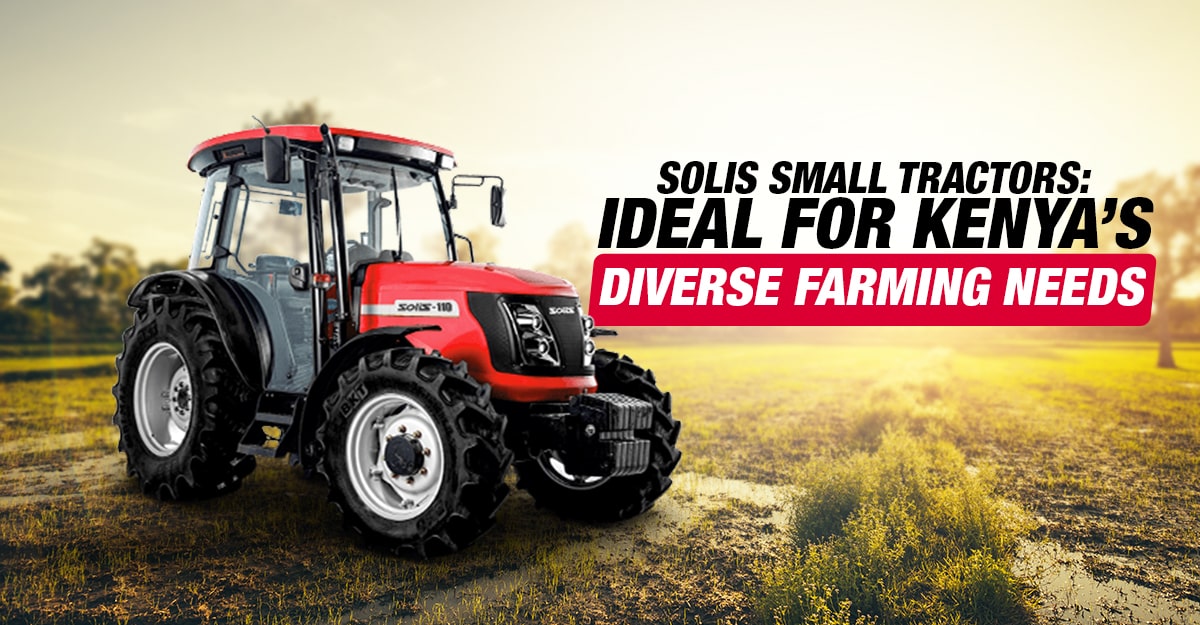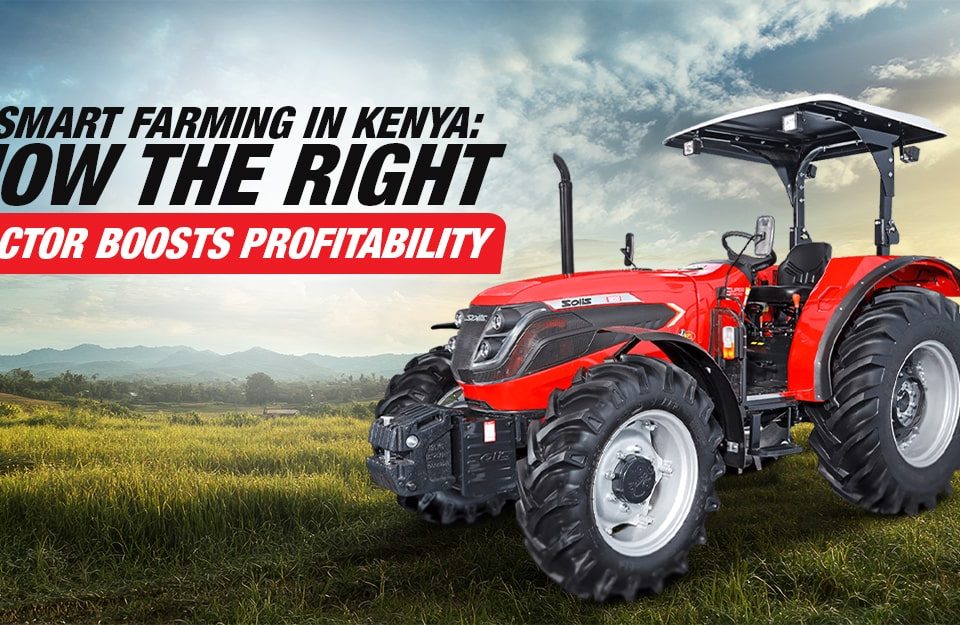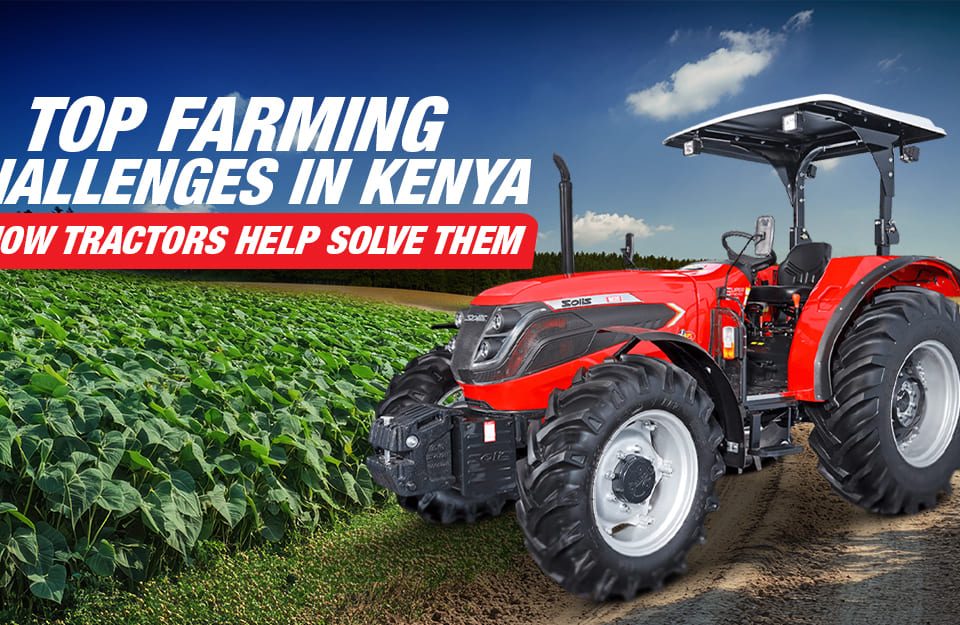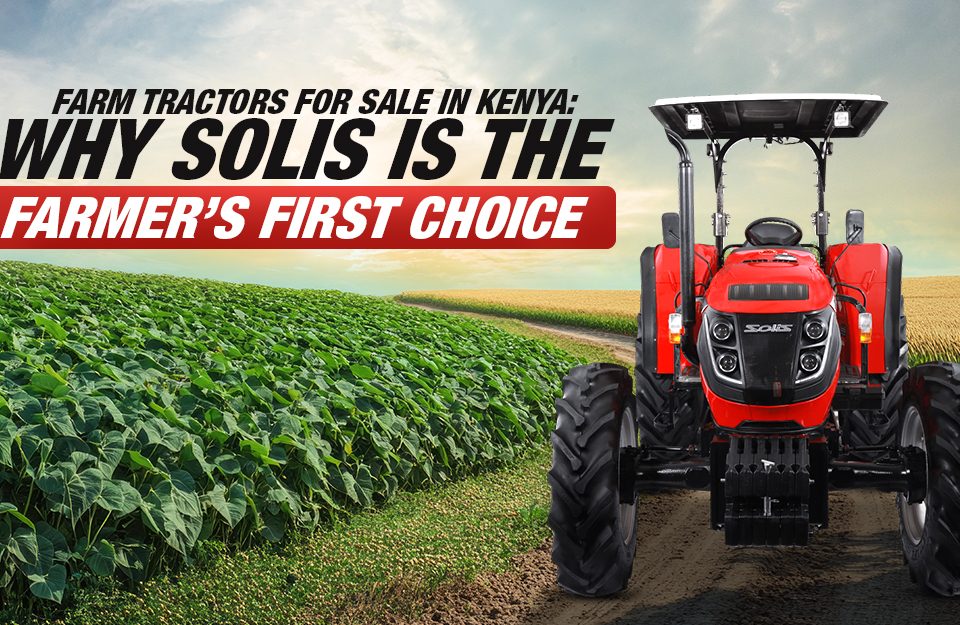Understanding of the needs of the Kenyan Farmer:-
Kenya’s agricultural industry is comprised of approximately 70% smallholder farmers who farm in less than five acres of land. These are farmers who practice subsistence and commercial farming, and they are sometimes hit by too many challenges, such as:
- Absence of the ability to access large-scale equipment due to the size of the land
- High cost of input and poor operations
- Lack of sufficient power supply, or roughness in the rural areas
- Multi-functional tools are needed to facilitate various operations.
Solis small tractors are geared towards addressing such aches with a complete mix of prowess, efficiency, and versatility in mind.
Why Solis Small Tractors Are a Perfect Fit for Kenya
1. Compact in Design:-
Though small in size, Solis small tractors are very powerful. S20, S26, and S50N models are meant to offer high torque and fuel efficiency for small to mid-length farms. They can function effectively in small spaces such as greenhouses, orchids, and vegetable farms without feeling compelled to compromise their performance since they are of a compact nature, from working through tilling, ploughing, and spraying of mechanical loads over rough areas. Such is easily covered by Solis small tractors.
2. Fuel-Efficient and Economical:-
Rising fuel cost is a big issue for farmers. Solis small tractors are designed to have economical engines, which help to reduce the costs of operations at a slight loss of efficiency. That is why they are a good long-term investment in smallholder farmers who understand overheads. Moreover, with a low level of maintenance needs and the availability of cheap spare parts, it is assured that using a Solis tractor is always cost-effective throughout its lifetime.
3. Multipurpose Utility:-
Solis small tractors are not driven for a specific project but are made to multi-task. They can be combined with a vast number of implements, such as:
- Rotary tillers for soil preparation
- Ploughs and harrows to work the land
- Orchards of trees and the trimming and pruning of trees for tree farming.
- Trailers for material transport
- Mowers for managing pasture
This quality means that a farmer does not have to purchase a variety of machines. One Solis tractor will comfortably handle a wide range of farming activities, maximising productivity with minimum investment.
4. Ideal for Kenya’s Varied Terrains:-
Kenyan farms occupy all types of landscapes from arid regions of Turkana to the fertile volcanic soils of the slopes of Mount Kenya. Solis small tractors have strong tyres, hard axles, and powerful engines able to tolerate even muddy fields and even hilly farmlands. Their manner of light construction also helps a long way to prevent soil compaction, which is an important factor as far as soil health and fertility are concerned in regions relying on agriculture to provide for them for a long time.
5. Farmer-Friendly Features:-
Solis small tractors are easy to operate even for first-time users. Some farmer-friendly features include:
- Ergonomics seat design for the operator’s comfort
- Power steering and user-friendly controls
- High ground clearance for ease of navigation around rough fields.
- Dual-clutch for better implementation control
- Safe and efficient brakes for added safety
6. After-Sales Support and Service Network:-
Purchasing a tractor is not only a product; it is also the after-sales service. Solis has established a special dealer and service network in Kenya in order to guarantee that the farmers are addressed, serviced, and supplied with genuine spare parts. Solis ensures, via training sessions, on-the-ground demonstrations, and expert recommendations, that each of their customers is prepared to reap the best of their tractor.
7. Environmentally Conscious Farming:-
With the era when climate-smart agriculture will become important, Solis small tractors support sustainable farming. Their effective engines save fuel, meaning less emissions, meaning less carbon footprint in the field.
Apart from that, their precision in the farming methods like sowing of seed and spraying also helps reduce input wastage, thereby contributing towards a proper utilisation of resources in agriculture.






